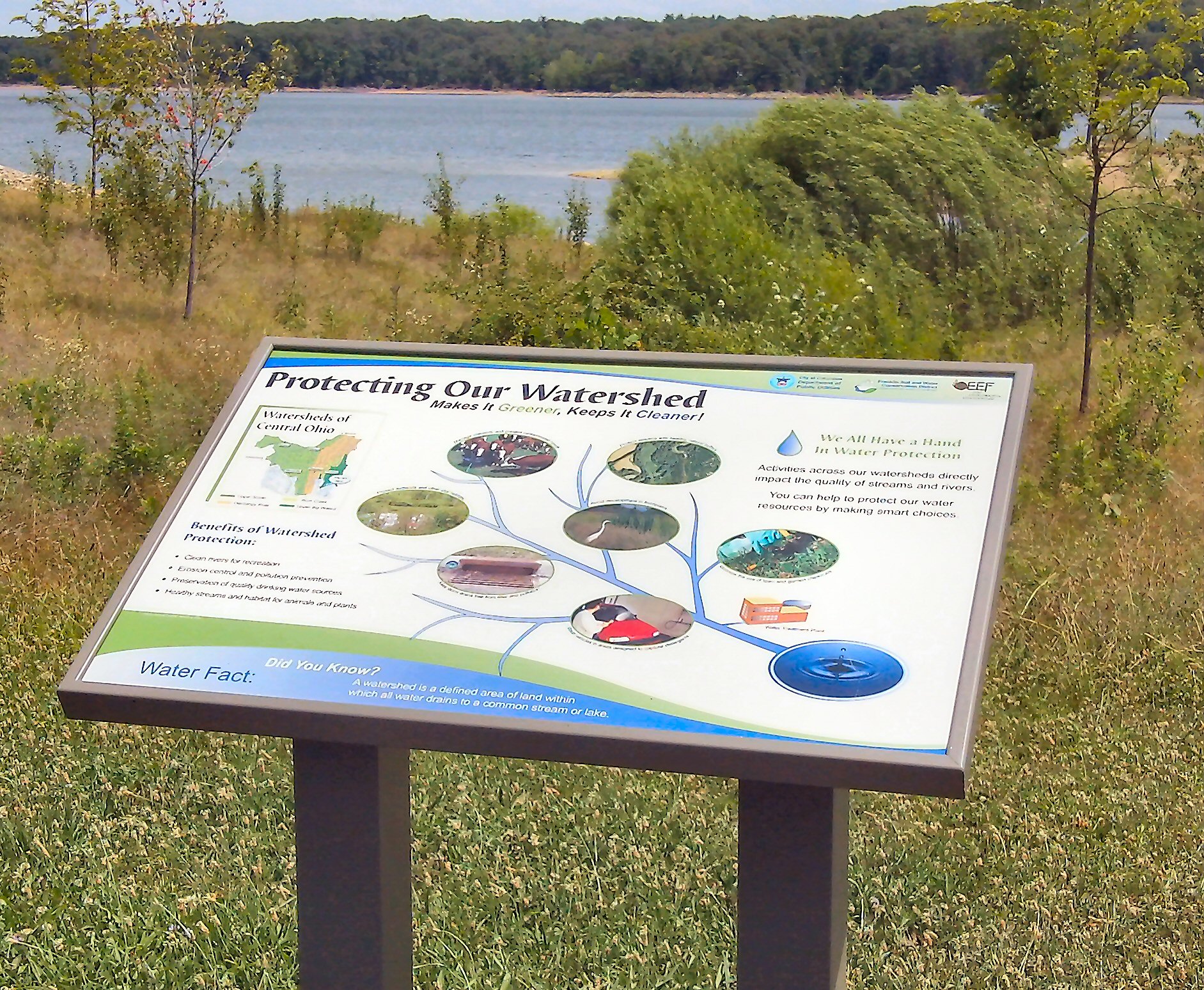Take a Tour

Signage installed at Griggs, O'Shaughnessy & Hoover Reservoirs invites park visitors to take a self-guided tour along the shoreline & learn about the green infrastructure installed there.
Rain gardens, porous pavement & more can improve the quality of storm water entering the reservoirs that supply our drinking water.
Non-point Source Pollution